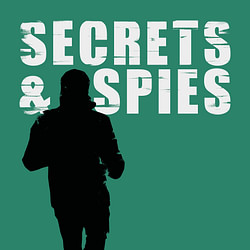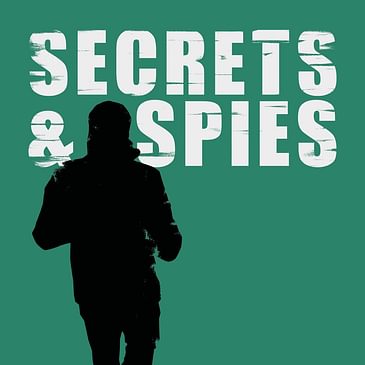We have a guest host for today’s show, a first for the podcast. Indie thriller author Stephen England talks with the spy novelist and screenwriter Michael Frost Beckner about his “Spy Game” trilogy, which was adapted into the 2001 film starring Robert Redford and Brad Pitt. He joins Stephen for a deep-dive into the trilogy, his broader career as a writer, and drops some details on books still to come.
Michael Frost Beckner’s website: https://www.michaelfrostbeckner.com/.
Stephen England’s website: https://www.stephenenglandbooks.com/
If you enjoyed the podcast please support the show and get access to our new Patreon-only show, "Extra Shot." Go to the Secrets & Spies Patreon page and subscribe there to get access: www.patreon.com/SecretsAndSpies
Check out Chris’s short spy film “THE DRY CLEANER” which is now available to buy on Apple TV & Amazon Prime. Watch the trailer here: https://youtu.be/j_KFTJenrz4
For more information about the podcast, check out our website: https://secretsandspiespodcast.com/
Support Secrets and Spies:
* Subscribe to our Youtube page: https://www.youtube.com/channel/UCDVB23lrHr3KFeXq4VU36dg
* Become a “Friend of the podcast” on Patreon for £3 www.patreon.com/SecretsAndSpies
* You can buy merchandise from our shop: https://www.redbubble.com/shop/ap/60934996?asc=u
Connect with us on social media.
BLUE SKY https://bsky.app/profile/secretsandspies.bsky.social
TWITTER twitter.com/SecretsAndSpies
FACEBOOK www.facebook.com/secretsandspies
INSTAGRAM https://www.instagram.com/secretsandspies/
SPOUTIBLE https://spoutible.com/SecretsAndSpies
Michael Frost Beckner’s website: https://www.michaelfrostbeckner.com/.
Stephen England’s website: https://www.stephenenglandbooks.com/
If you enjoyed the podcast please support the show and get access to our new Patreon-only show, "Extra Shot." Go to the Secrets & Spies Patreon page and subscribe there to get access: www.patreon.com/SecretsAndSpies
Check out Chris’s short spy film “THE DRY CLEANER” which is now available to buy on Apple TV & Amazon Prime. Watch the trailer here: https://youtu.be/j_KFTJenrz4
For more information about the podcast, check out our website: https://secretsandspiespodcast.com/
Support Secrets and Spies:
* Subscribe to our Youtube page: https://www.youtube.com/channel/UCDVB23lrHr3KFeXq4VU36dg
* Become a “Friend of the podcast” on Patreon for £3 www.patreon.com/SecretsAndSpies
* You can buy merchandise from our shop: https://www.redbubble.com/shop/ap/60934996?asc=u
Connect with us on social media.
BLUE SKY https://bsky.app/profile/secretsandspies.bsky.social
TWITTER twitter.com/SecretsAndSpies
FACEBOOK www.facebook.com/secretsandspies
INSTAGRAM https://www.instagram.com/secretsandspies/
SPOUTIBLE https://spoutible.com/SecretsAndSpies


